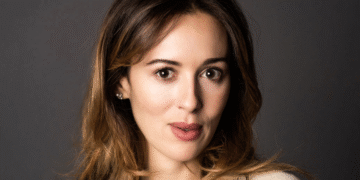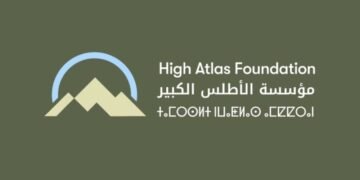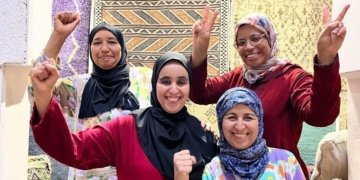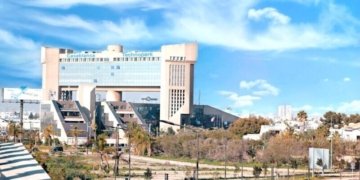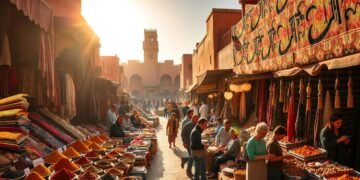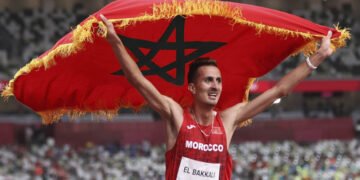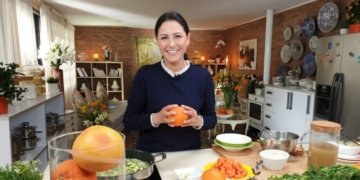Morocco, located in North Africa, is a country rich in history and cultural heritage. From the bustling markets of Marrakesh to the rolling sand dunes of the Sahara Desert, Morocco has a diverse landscape that is matched by its diverse population. The Moroccan people are known for their warm hospitality, strong family ties, and vibrant cultural traditions. In this article, we’ll take a closer look at the customs and traditions that make the Moroccan people so unique.
Hospitality is a Way of Life
One of the most notable aspects of Moroccan culture is the importance placed on hospitality. Visitors to the country are often struck by the friendliness and generosity of the people they meet. Whether it’s offering a cup of tea or inviting a stranger into their home, Moroccans are known for their hospitality. This tradition is rooted in the belief that guests are a gift from God and should be treated as such.
The Importance of Tea
Tea is an important part of Moroccan hospitality and is often used as a symbol of friendship and warmth. Moroccans will often invite guests into their homes for a cup of tea and a chat, a tradition known as “Moroccan tea culture.” This is a time for conversation and getting to know one another, and it’s a staple of daily life in Morocco.
Hospitality extends to Food
Moroccan Food (Tajine, Tanjia, Couscous, Bastila, and many others) is also an important part of Moroccan hospitality. Whether it’s a formal dinner party or a simple meal with friends, Moroccans take pride in their culinary traditions and are known for their delicious and flavorful dishes. Hospitality extends to the way food is served, with guests often offered multiple courses and plenty of options to choose from.
Strong Family Ties
Family is a central aspect of life in Morocco, and it is not uncommon for multiple generations to live together. Elders are respected and valued members of the family, and the extended family network provides support and assistance to one another.
The Importance of Weddings
Weddings are a major event in Morocco and often involve the entire community. They are typically multi-day celebrations filled with music, dancing, and feasting. Wedding celebrations often bring families and communities together, strengthening the bonds of relationships and reinforcing the importance of family in Moroccan culture.
The Role of Women in Family Life
Women play an important role in Moroccan family life, serving as the primary caregiver for children and the elderly. Women also often play a significant role in the family’s financial decisions and are responsible for managing the household.
The Influence of Islam on Moroccan Culture
Islam is the dominant religion in Morocco and has had a significant impact on the country’s culture and traditions. From the call to prayer that echoes through the streets five times a day to the intricate mosaics found in the country’s many mosques, Islam is a visible and influential part of Moroccan life.
Ramadan and Other Religious Celebrations
Ramadan is a month-long period of fasting observed by Muslims worldwide, and it is an important event in Morocco. During this time, Moroccans abstain from food and drink from sunrise to sunset and come together for communal meals and prayers at night. Other religious celebrations, such as Eid al-Fitr and Eid al-Adha, are also significant events in the country, bringing families and communities together for special prayers, feasting, and other festivities.
The Significance of Mosques
Mosques play a central role in the lives of Moroccans and serve as a place of worship, community, and learning. The intricate mosaics, arches, and domes found in many of Morocco’s mosques are a testament to the country’s rich cultural heritage and the importance of Islam in daily life.
Traditional Clothing and Handicrafts
Moroccan clothing and handicrafts are known for their bright colors and intricate designs. From the flowing robes worn by men and women to the hand-woven textiles and ceramics produced by local artisans, traditional clothing and handicrafts are an important part of the country’s cultural heritage.
The Significance of Textiles
Textiles are an important part of Moroccan culture, with hand-woven fabrics and rugs produced in the country being sought after by collectors and tourists alike. Textiles are often used to decorate homes, worn as clothing, or used as a form of currency in traditional transactions.
The Art of Henna
Henna is a type of plant used to create temporary body art, and it is an important part of Moroccan culture. From bridal henna parties to elaborate designs created for special events, henna is a form of self-expression and a symbol of beauty and good luck.
In conclusion, the Moroccan people are a unique and fascinating group, with a rich cultural heritage and strong traditions that have been passed down from generation to generation. From hospitality to family life to the influence of Islam, the customs and traditions of the Moroccan people are a testament to the country’s vibrant and diverse cultural heritage.
Whether you’re visiting Morocco or simply interested in learning more about its rich cultural heritage, understanding the Moroccan people is a must for anyone looking to deepen their knowledge of this fascinating part of the world.


